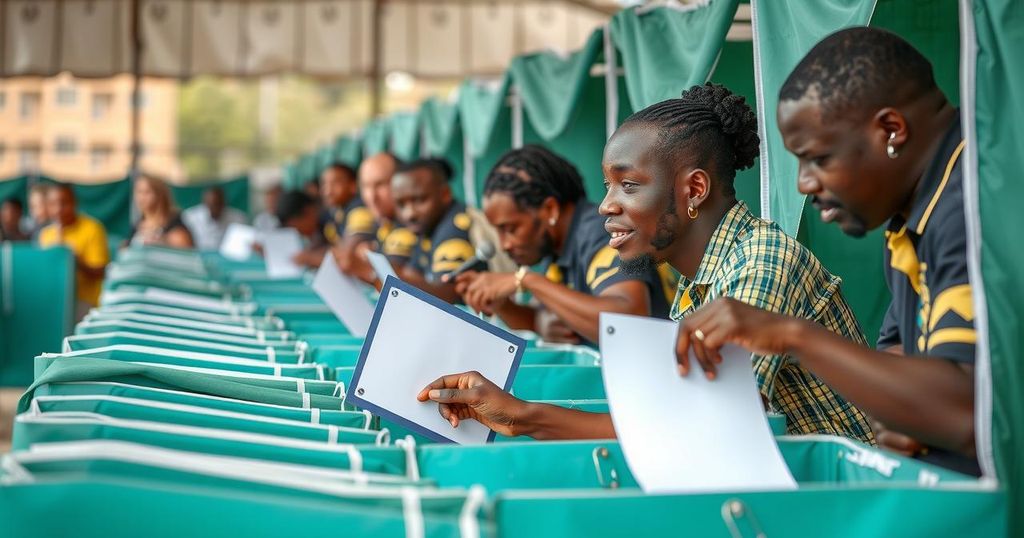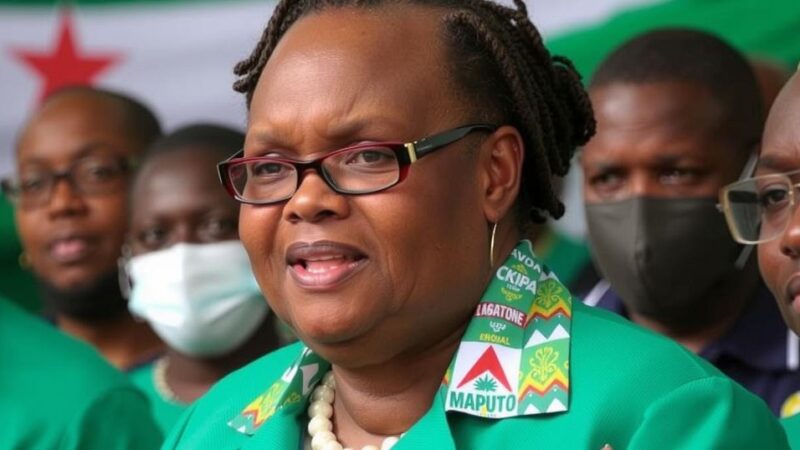Ghana held presidential and legislative elections on December 7, 2024, amidst a severe economic crisis, with significant voter turnout expected. The election is a contest primarily between Vice President Mahamudu Bawumia, representing the ruling NPP, and former President John Dramani Mahama of the NDC. With high inflation and unemployment impacting the nation, this election serves as a crucial test for democracy and economic governance in the region.
On December 7, 2024, Ghanaians participated in presidential and legislative elections amid one of the most severe economic crises the nation has faced in a generation. With 18.7 million registered voters, the elections are viewed as a critical gauge of the country’s democratic health. Polls opened at 7 a.m. GMT and are slated to close at 5 p.m. GMT, with preliminary results expected by Saturday evening and formal announcements by Tuesday.
Ghana has historically been considered a bastion of democracy within West Africa, especially as the region has grappled with coups and rising extremism. Once recognized for its economic vigor, the past few years have seen Ghana beset by economic challenges, including rampant inflation reaching 54% previously, alongside rampant unemployment.
According to a recent Afrobarometer poll, a staggering 82% of Ghanaians believe the country is heading in the wrong direction. While hovering around twelve candidates, the election is predominantly framed as a contest between Vice President Mahamudu Bawumia of the ruling New Patriotic Party (NPP) and former President John Dramani Mahama of the opposition National Democratic Congress (NDC).
Bawumia, an Oxford-trained economist, is up against Mahama, who aims for a political resurgence after his earlier tenure ended in 2016. Opinion polls show a potential comeback for Mahama, with projections suggesting he may achieve 52.2% of the vote against Bawumia’s 41.4%. Both candidates seek to address the pressing economic issues, although their proposed solutions appear similar in substance.
The election will also determine 276 members of parliament with both leading parties currently tied at 137 members in the national assembly, having one independent candidate voting predominantly with the ruling party. During their final campaign rallies, economic reform was front and center for both candidates, as Bawumia endeavored to build on the incumbent government’s efforts, while Mahama called for a comprehensive ‘reset’ across several facets of governance.
Voter enthusiasm was visible across Accra, with decorated streets and lively rallies, yet there remains a somber undercurrent regarding the dire economic landscape in which essential goods have skyrocketed in price. The illicit mining of gold has compounded economic woes—an activity that, despite government regulation attempts, continues to pollute local environments and deplete resources as citizens search for employment in a failing economy.
Ghana’s electoral process has become increasingly vital due to recent economic turmoil marked by inflation and unemployment. Once a leader in democratic stability in West Africa, the country’s current crises mirror broader regional challenges influenced by geopolitical instability. The ongoing economic plight has generated a pervasive sense of disappointment within Ghana, with many citizens feeling disenfranchised, reflecting their concerns about the future of both their democracy and economy.
The elections in Ghana represent a significant moment in the country’s democratic journey, juxtaposed against a backdrop of economic hardship. The outcome of these elections will not only influence the governance of Ghana but also signal to the region regarding democratic resilience amidst challenges. As both candidates strategize around economic recovery, the populace remains watchful, aware that their votes will shape the destiny of their nation.
Original Source: apnews.com







